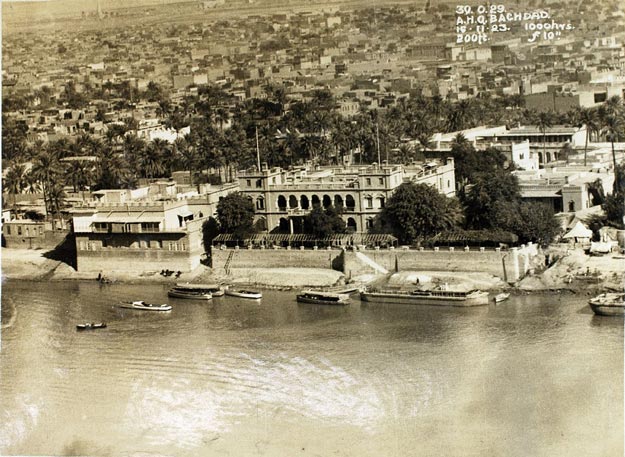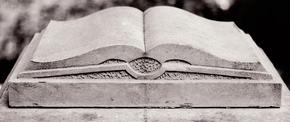The views expressed in our content reflect individual perspectives and do not represent the official views of the Baha'i Faith.
In Part 1, “Celebrating the Twelve-Day Festival of Ridvan,” you may recall reading:
We do know that on either the First Day of Ridvan, or perhaps the Eighth Day of Ridvan, Baha’u’llah declared his mission to a few of his close companions, and the transformative global force of the Baha’i teachings began.
Baha’u’llah’s eldest daughter, Bahiyyih Khanum, recalls that Baha’u’llah made His Declaration on the Eighth Day of Ridvan—April 29th, 1863 (same day as when the Ninth Day of Ridvan is usually observed):
Four days before the caravan was to set out, the Blessed Perfection [Baha’u’llah] called Abbas Effendi into his tent and told him that he himself was the one whose coming had been promised by the Bab—the Chosen of God, the Centre of the Covenant. A little later, and before leaving the garden, he selected from among his disciples four others, to whom he made the same declaration. He further said to these five that for the present he enjoined upon them secrecy as to this communication, as the time had not come for a public declaration; but that there were reasons which caused him to deem it necessary to make it at that time to a few whom he could trust. These reasons he did not state; but they are to my mind suggested by the subsequent events which I shall narrate farther on, and which I think he at that time anticipated, and in view of which he felt that he needed special protection. – Myron Henry Phelps and Bahiyyih Khanum, Life and Teachings of Abbas Effendi, p. 30.
What if the Declaration of Baha’u’llah did take place on the First Day of Ridvan, rather than on the Eighth Day? What information do we have?
Well, we do not have the exact words of what Baha’u’llah said. But we do have the exact words of what Baha’u’llah wrote on the First Day of Ridvan!
On the afternoon of the First Day of Ridvan, Baha’u’llah revealed “The Tablet of Job,” also known as “The Sura of Patience” or “The City of Patience.” So we can infer something about Baha’u’llah’s declaration of his mission directly from the Tablet of Job, which preserves Baha’u’llah’s exact words on that momentous occasion during Ridvan. Here’s an excerpt:
Say: The Bird of Glory has flown from one branch and has sought the Branch of holiness planted in the land of exile. Say: the Breeze of Divine Unity has dawned from the Abode of Peace [i.e. Baghdad] and has sought to blow over the city of separation as mentioned in the scrolls of divine Revelation. Say: O concourse in the heavens and on earth! Throw ye ashes on your faces and on your heads because the Beauty of God disappears from these near cities and intends to dawn from the horizon of a remote heaven.
At this point We address all who are in heaven and on earth from this City that haply all things may attain to what has been ordained for them from the Wise, the Omniscient One.
O Moment of time! Be not heedless of this moment that has come in truth during which the breeze of God is blowing from a holy and westerly direction. O Hour! Celebrate this hour that has arisen with thee and recognize this eternal, heavenly and everlasting banquet that has descended from the clouds of holiness and light from the heaven of might in the name of God. O Day! Illumine all existing things in this luminous, effulgent and divine Day that has become manifest from the horizon of Iraq. – Provisional translation of Baha’u’llah’s Tablet of Patience, by Khazeh Fananapazir.
We also know that Baha’u’llah made three important statements on the first day of Ridvan:
On the first day of His arrival in the garden designated the Ridvan, the Ancient Beauty [Baha’u’llah] established Himself upon the Most Great Throne. Thereupon, the Tongue of Glory uttered three blessed verses. First, that in this Revelation the use of the sword is prohibited. Second, that whoso layeth a claim ere the expiration of a thousand years is assuredly in grievous error; by year, a complete year is intended and any interpretation of this matter is forbidden. And third, that the one true God, exalted be His Glory, at that very moment shed the splendours of all His names upon the whole creation. – Provisional translation by Nader Saiedi, Logos and Civilization, p. 242.

The Tigris River
In other words, Baha’u’llah (1) abolished holy war; (2) announced that there would not be another messenger of God for at least 1,000 years; and (3) abolished ritual “uncleanness.” Ten years later, Baha’u’llah would enshrine these three laws in his Most Holy Book.
During the first eight days of Ridvan, the rest of Baha’u’llah’s family, who had remained at home, busily packed in preparation for their long journey to Constantinople (now Istanbul). On April 30, 1863, Baha’u’llah’s remaining family ferried across the subsiding Tigris River and rejoined Baha’u’llah.
The Persian state and clergy sought to diminish Baha’u’llah’s charismatic power and influence in Baghdad, which was not far from Najaf and Karbala, where many Persians traveled to visit the sacred Shia shrines. So, on May 3, 1863—the Twelfth Day of Ridvan that year—Baha’u’llah departed from the Garden of Ridvan to begin his journey to a more remote place of exile, from Baghdad to Constantinople:
The departure of Baha’u’llah from the Garden of Riḍvan, at noon, on the 14th of Dhi’l-Qadih 1279 A.H. (May 3, 1863), witnessed scenes of tumultuous enthusiasm no less spectacular, and even more touching, than those which greeted Him when leaving His Most Great House in Baghdad. “The great tumult,” wrote an eyewitness, “associated in our minds with the Day of Gathering, the Day of Judgment, we beheld on that occasion. Believers and unbelievers alike sobbed and lamented. The chiefs and notables who had congregated were struck with wonder. Emotions were stirred to such depths as no tongue can describe, nor could any observer escape their contagion.” – Shoghi Effendi, God Passes By, p. 155.
In the course of time, Baha’is expect that the Festival of Paradise will become one of the world’s great religious celebrations. We hope you’ll join us in joyously marking this happy and momentous occasion.

















Comments
Sign in or create an account
Continue with Facebookor